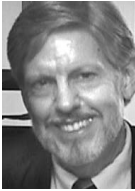
From its inception Buddhism has probed the nature of mind, using the mind itself as its instrument of investigation, especially with the aid of refined meditation methods. For the past millennium, Tibetan Buddhists have pursued this investigation in monastic universities with rigor and exacting scholarship. Until now, science has been skeptical of this course of investigation because of its subjectivity — the use of the mind to investigate itself. Today, however, especially with the development of new technology, the biobehavioral sciences (neuroscience, cognitive science, psychology, biomedicine) are in the process of extending their methods in search of ever-bolder approaches to studying the workings of the human mind. This Dialogue will consist of three sessions that address empirical findings about three aspects of mind that have been addressed by both Buddhism and biobehavioral science: attention and cognitive control, emotion, and mental imagery.
LOCATION: Cambridge, Massachusetts
Session Videos
Participants

His Holiness the 14th Dalai Lama
Honorary Board Chair

Adam Engle, JD, MBA
Mind & Life Institute

Ajahn Amaro
Abhayagiri Buddhist Monastery

Richard J. Davidson, PhD
William James and Vilas Research Professor of Psychology and Psychiatry and Founder & Director of the Center for Healthy Minds, University of Wisconsin-Madison. Founder and Chief Visionary for Healthy Minds Innovations, Inc.

Anne Harrington, PhD
Harvard University

Thupten Jinpa, PhD
Board Chair, Mind & Life Institute

Daniel Kahneman, PhD
Woodrow Wilson School

Nancy Kanwisher, PhD, FBA
Massachusetts Institute of Technology

Eric Lander, PhD
Whitehead Institute




Anne Treisman, PhD
Princeton

Arthur Zajonc, PhD
Mind & Life Institute




